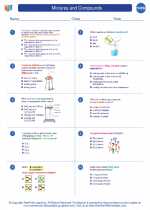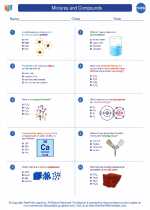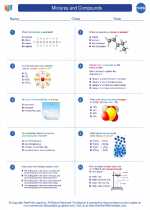Chronology in Chemistry
Chronology in chemistry refers to the study of the order and timing of events and discoveries in the development of the field. Understanding the chronology of key scientific discoveries and the sequence of events in the history of chemistry is important for gaining insights into how the field has evolved over time.
Key Concepts in Chronology of Chemistry
- Atomic Theory: Chronology in chemistry begins with the development of the atomic theory. Key figures such as John Dalton, J.J. Thomson, and Ernest Rutherford made significant contributions to our understanding of the structure of atoms and the nature of matter.
- Periodic Table: The chronology of the periodic table's development is essential in understanding the organization of elements. Dmitri Mendeleev and other scientists contributed to the arrangement and periodicity of the elements.
- Chemical Reactions: Understanding the chronology of the discovery of fundamental chemical reactions and principles, such as the law of conservation of mass, law of definite proportions, and the law of multiple proportions, provides insights into the development of chemical theories.
- Modern Developments: The chronology of modern developments in chemistry, including advances in organic chemistry, physical chemistry, biochemistry, and materials science, highlights the diverse and dynamic nature of the field.
Study Guide for Chronology in Chemistry
When studying the chronology of chemistry, consider the following key points:
- Identify the key scientists and their contributions to the development of atomic theory, the periodic table, and chemical reactions.
- Understand the historical context in which these discoveries were made, including the technological and societal influences on scientific progress.
- Examine the impact of major historical events, such as the Industrial Revolution and World Wars, on the advancement of chemistry.
- Explore the connections between different branches of chemistry and how they have evolved over time.
- Consider the implications of key discoveries on our current understanding of chemical principles and their applications in various fields.
By understanding the chronology of chemistry, students can gain a deeper appreciation of the interconnected nature of scientific progress and the significance of historical developments in shaping the modern field of chemistry.
.◂Chemistry Worksheets and Study Guides High School. Mixtures and Compounds
Worksheet/Answer key Mixtures and Compounds
Mixtures and Compounds  Worksheet/Answer key
Worksheet/Answer key Mixtures and Compounds
Mixtures and Compounds  Worksheet/Answer key
Worksheet/Answer key Mixtures and Compounds
Mixtures and Compounds 

 Worksheet/Answer key
Worksheet/Answer key
 Worksheet/Answer key
Worksheet/Answer key

The resources above cover the following skills:
Chemistry II
Properties of Matter
Develop and use models to explain the differences between chemical compounds using patterns as a method for identification.
Use mathematical representations to quantify matter through the analysis of patterns in chemical compounds.